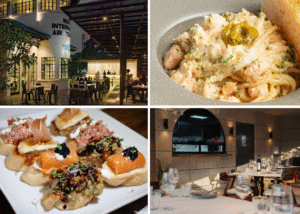In the wake of the COVID-19 pandemic, airports worldwide have faced unprecedented challenges, with commercial revenue significantly impacted. However, Budapest Ferenc Liszt International Airport has emerged as a beacon of resilience and innovation, successfully navigating the post-pandemic landscape through strategic retail and food & beverage (F&B) expansions. This article explores how Budapest Airport has built upon its commercial recovery, focusing on recent retail and F&B openings that enhance the passenger experience.
Strategic Retail and F&B Expansions
Budapest Airport has embarked on a comprehensive strategy to bolster its commercial performance, surpassing pre-pandemic revenue figures in 2023. Despite limited retail space due to the constraints of the existing infrastructure, the airport has implemented a novel retail strategy that emphasizes quality, sustainability, and passenger-centric experiences. This approach has been instrumental in redefining the retail landscape at the Hungarian gateway, aligning with evolving market trends and passenger needs.
Innovations in F&B Offerings
One of the standout initiatives in Budapest Airport’s F&B sector is the opening of a Prosecco Bar by Bottega in partnership with SSP, followed by the unveiling of the SSP-operated Food Trucks restaurant in Pier 1. These additions cater to the growing demand for unique dining experiences among travelers. Additionally, the airport has expanded self-service options, introducing extended kiosks at popular fast-food chains like Burger King and KFC, alongside the central HDF and WHSmith stores, enhancing convenience for passengers.
Enhancing Passenger Experience Through Sustainability
Budapest Airport’s strategy extends beyond mere commercial growth, incorporating sustainability targets into its Service Level Agreements (SLAs) with partners. This commitment to environmental responsibility reflects the airport’s broader vision of creating a world-class shopping experience that balances quality with sustainability, setting a precedent for other airports globally.
Recent Developments and Future Outlook
Recent developments at Budapest Airport include the opening of a new landside WHSmith store in Terminal 2A, expanding its presence to 442 square meters. Heinemann Duty Free (HDF) has also refreshed its store offerings, showcasing a strong lineup of Hungarian products and introducing a ‘Collect on Arrival’ service for passengers traveling to Schengen areas. These enhancements, along with the introduction of new retailers like Playersroom and Rituals, underscore the airport’s dedication to continuously improving the passenger experience.
Budapest Airport’s successful navigation of the post-pandemic era through strategic retail and F&B expansions serves as a model for other airports seeking to recover and thrive in challenging times. By focusing on quality, sustainability, and passenger satisfaction, Budapest Airport has not only met but exceeded market expectations, demonstrating a forward-thinking approach to commercial recovery. As the aviation industry continues to evolve, such innovative strategies will undoubtedly play a crucial role in shaping the future of airport commerce.




